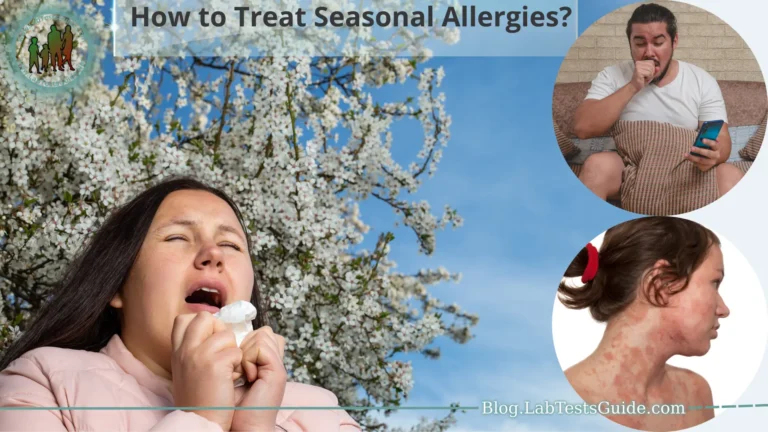Menopause is a natural stage in a woman’s life when her menstrual periods cease, marking the end of her reproductive years. It typically occurs between the ages of 45 and 55, but the timing can vary for each individual. Managing menopause symptoms can be a multifaceted approach that involves lifestyle changes, self-care, and sometimes medical interventions.

Common menopause symptoms include hot flashes, night sweats, vaginal dryness, mood swings, sleep disturbances, weight gain, and decreased libido. These symptoms occur due to hormonal changes, specifically a decline in estrogen and progesterone levels. However, the severity and duration of symptoms can vary from woman to woman.
What is Menopause?
Menopause is a natural biological process that occurs in women as they reach a certain age, typically between their late 40s and early 50s. It is defined as the permanent cessation of menstrual periods for a consecutive 12 months. Menopause marks the end of a woman’s reproductive years and the conclusion of her ability to conceive naturally.
During menopause, a woman’s ovaries gradually produce less estrogen and progesterone, which are the hormones responsible for regulating the menstrual cycle and supporting fertility. As the levels of these hormones decline, the menstrual periods become irregular, eventually ceasing altogether.
The transition into menopause is typically characterized by a phase called perimenopause, which can last for several years before menopause is officially reached. During perimenopause, women may experience irregular menstrual cycles, changes in menstrual flow, and various menopause symptoms due to fluctuating hormone levels.
Menopause is a natural part of aging and is influenced by genetic factors and individual variations. It is important to note that menopause can also occur prematurely due to certain medical conditions, surgical removal of the ovaries, or certain medical treatments such as chemotherapy or radiation therapy.
what is Menopause Symptoms?
some common menopause symptoms include.
- Hot Flashes and Night Sweats: Sudden, intense feelings of heat, often accompanied by sweating and flushing of the face and upper body. Night sweats refer to excessive sweating during sleep, leading to disrupted sleep patterns.
- Irregular Periods: Changes in the menstrual cycle, such as shorter or longer cycles, heavier or lighter bleeding, or skipped periods.
- Vaginal Dryness and Discomfort: Reduced vaginal lubrication, leading to dryness, itching, and discomfort during sexual intercourse.
- Sleep Problems: Insomnia, difficulty falling asleep or staying asleep, and disrupted sleep patterns due to night sweats or other menopausal symptoms.
- Mood Changes: Mood swings, irritability, increased anxiety, and feelings of sadness or depression.
- Fatigue and Lack of Energy: Persistent feelings of tiredness, low energy levels, and reduced stamina.
- Difficulty Concentrating and Memory Problems: Experiencing difficulty with concentration, memory lapses, and forgetfulness.
- Weight Gain: Slower metabolism and hormonal changes can contribute to weight gain, particularly around the abdomen.
- Changes in Sexual Desire: Decreased libido or changes in sexual desire and response.
- Urinary Symptoms: Increased frequency of urination, urgency, or urinary incontinence.
It’s important to note that while these symptoms are commonly associated with menopause, they can also be attributed to other underlying health conditions. If you are experiencing any of these symptoms, it is recommended to consult with a healthcare professional to determine the cause and explore appropriate management strategies.
Lifestyle Changes for Managing Menopause Symptoms:
Here are some key lifestyle changes that can be beneficial.
Healthy Diet and Nutrition:
- Include a variety of fruits, vegetables, whole grains, and lean proteins in your diet.
- Consume foods rich in calcium and vitamin D for bone health, such as dairy products, leafy greens, and fortified foods.
- Limit or avoid foods high in saturated fats, processed sugars, and sodium.
- Stay hydrated by drinking an adequate amount of water.
Regular Exercise:
- Engage in regular physical activity to manage weight, boost mood, and improve overall health.
- Incorporate a mix of cardiovascular exercises (such as brisk walking, jogging, swimming) and strength training exercises (such as weightlifting or resistance training).
- Aim for at least 150 minutes of moderate-intensity aerobic activity or 75 minutes of vigorous-intensity aerobic activity per week.
- Consult with a healthcare professional before starting a new exercise program, especially if you have any underlying health conditions.
Stress Management:
- Practice stress-reduction techniques, such as deep breathing exercises, meditation, or yoga.
- Engage in activities that promote relaxation and self-care, such as taking a bath, reading, or listening to calming music.
- Prioritize and manage your time effectively to reduce feelings of overwhelm.
- Seek support from friends, family, or support groups to cope with stress and emotional challenges.
Adequate Sleep:
- Maintain a consistent sleep schedule and create a relaxing bedtime routine.
- Create a sleep-friendly environment by keeping the bedroom cool, dark, and quiet.
- Limit exposure to electronic devices (such as smartphones and computers) before bed, as the blue light can interfere with sleep.
- Avoid consuming caffeine or large meals close to bedtime.
Quit Smoking and Limit Alcohol:
- If you smoke, consider quitting, as smoking can exacerbate menopause symptoms and increase the risk of various health conditions.
- Limit alcohol consumption, as it can trigger hot flashes and disrupt sleep patterns.
Maintain a Healthy Weight:
- Strive to achieve and maintain a healthy weight through a balanced diet and regular exercise.
- Consult with a healthcare professional or registered dietitian for personalized guidance and support.
It’s important to remember that lifestyle changes may not eliminate all menopause symptoms, but they can significantly improve your overall well-being and reduce the severity of symptoms. It’s always advisable to consult with a healthcare professional to develop a personalized plan that suits your individual needs and medical history.
Natural Remedies and Alternative Therapies:
here are some commonly used natural remedies and alternative therapies.
Herbal Supplements:
- Black Cohosh: It may help alleviate hot flashes, mood swings, and sleep disturbances.
- Soy Isoflavones: These plant-based compounds, found in soy products, may provide relief for hot flashes and vaginal dryness.
- Red Clover: It contains compounds similar to estrogen and may help reduce hot flashes and improve bone health.
Acupuncture:
- Acupuncture involves the insertion of thin needles at specific points on the body to promote balance and alleviate symptoms.
- Research suggests that acupuncture can help reduce hot flashes, improve sleep quality, and relieve mood swings associated with menopause.
Meditation and Mindfulness:
- Meditation and mindfulness techniques involve focusing attention and achieving a state of mental clarity and calm.
- Regular practice can help reduce stress, improve sleep, and enhance emotional well-being during menopause.
Relaxation Techniques:
- Deep breathing exercises, progressive muscle relaxation, and guided imagery can help promote relaxation and reduce anxiety or tension associated with menopause symptoms.
It is important to consult with a healthcare professional before starting any natural remedies or alternative therapies, as they may interact with medications or have contraindications based on individual health conditions. Additionally, while natural remedies and alternative therapies can provide relief for some women, they may not be effective for everyone. Each person’s experience with menopause is unique, so it’s essential to find the approaches that work best for you and seek professional guidance when needed.
Hormone Replacement Therapy (HRT) :
Here are some key aspects of HRT.
Types of Hormone Replacement Therapy:
- Estrogen Therapy: This involves taking estrogen alone for women who have undergone a hysterectomy (surgical removal of the uterus).
- Estrogen and Progestin Therapy: Progestin is added to estrogen therapy to protect the lining of the uterus. This combination is typically prescribed for women who still have their uterus.
- Bioidentical Hormone Therapy: Bioidentical hormones have a chemical structure that is identical to the hormones naturally produced in the body. They are available in various forms, including pills, patches, creams, and injections.
Benefits of Hormone Replacement Therapy:
- Reduction of hot flashes, night sweats, and vaginal dryness.
- Improvement in sleep quality and mood.
- Prevention of bone loss (osteoporosis) and reduced risk of fractures.
- Potential improvement in cognitive function and memory.
- Relief from urogenital symptoms such as urinary incontinence.
Risks and Considerations:
- Hormone replacement therapy is associated with certain risks and considerations, and its use should be discussed with a healthcare professional.
- The decision to use HRT depends on factors such as individual symptoms, overall health, medical history, and personal preferences.
- Potential risks of HRT include an increased risk of blood clots, stroke, breast cancer, and cardiovascular disease, particularly in older women or those with pre-existing risk factors.
- The duration of HRT use should be individualized, with regular evaluations and discussions with a healthcare professional.
Non-Hormonal Options:
- Selective Estrogen Receptor Modulators (SERMs): These medications act like estrogen in some tissues and have estrogen-blocking effects in others. They can help manage certain menopause symptoms and may have benefits for bone health.
- Antidepressants and Anti-Seizure Medications: Certain antidepressant medications, such as selective serotonin reuptake inhibitors (SSRIs), and anti-seizure medications, such as gabapentin, may be prescribed to manage hot flashes and mood symptoms.
It’s important to note that hormone replacement therapy is not suitable for everyone. It should be discussed with a healthcare professional who can assess your individual health history, risks, and benefits. Regular follow-up appointments and discussions with your healthcare provider are essential to monitor the effectiveness and safety of HRT.
Communicating with Healthcare Providers:
Here are some key points to consider when engaging in conversations with your healthcare provider.
Regular Check-Ups:
- Schedule regular check-ups with your healthcare provider to discuss your menopause symptoms, overall health, and any concerns or questions you may have.
- These check-ups allow for ongoing monitoring of your health and the effectiveness of any treatments or interventions.
Open and Honest Communication:
- Be open and honest about your menopause symptoms, their impact on your daily life, and any changes or challenges you’re experiencing.
- Share any emotional or psychological changes you may be going through, as they are common during menopause.
- Provide details about the intensity, frequency, and duration of your symptoms to help your healthcare provider better understand your experience.
Discussing Menopause Symptoms:
- Clearly describe your menopause symptoms, including hot flashes, sleep disturbances, mood changes, vaginal dryness, or any other concerns.
- Mention any lifestyle modifications or natural remedies you’ve tried and their impact on your symptoms.
- Ask questions about the potential causes of your symptoms and the available treatment options.
Exploring Treatment Options:
- Discuss different treatment options available for managing your specific symptoms.
- Inquire about the benefits, risks, and potential side effects of each treatment option to make informed decisions.
- Explore both non-pharmacological approaches (such as lifestyle changes, natural remedies, or alternative therapies) and pharmacological interventions (such as hormone replacement therapy or other medications).
Addressing Concerns and Questions:
- Feel free to express any concerns or fears you may have about menopause or specific treatments.
- Ask questions to clarify any uncertainties or doubts you may have.
- Seek additional information or resources to expand your knowledge about menopause and available management options.
Remember, your healthcare provider is there to support you and provide guidance throughout your menopause journey. Building a strong and open doctor-patient relationship can help ensure that your concerns are heard, your questions are answered, and the best possible care is provided to manage your menopause symptoms effectively.
FAQs:
Are menopause symptoms the same for every woman?
Menopause symptoms can vary greatly from woman to woman. While some women may experience mild symptoms or none at all, others may have more severe and disruptive symptoms. The type, intensity, and duration of symptoms can be influenced by various factors, including genetics, overall health, lifestyle, and individual hormone levels.
Can menopause symptoms be managed without any treatment?
Yes, many women are able to manage their menopause symptoms through lifestyle changes, such as adopting a healthy diet, engaging in regular exercise, practicing stress management techniques, and incorporating relaxation strategies. Natural remedies and alternative therapies can also provide relief for some women. However, for those with severe symptoms that significantly impact their quality of life, medical interventions such as hormone replacement therapy or other medications may be recommended.
How long do menopause symptoms typically last?
The duration of menopause symptoms can vary. Some women may experience symptoms for a few months, while others may experience them for several years. On average, menopause symptoms persist for about four to five years, but for some women, certain symptoms such as hot flashes and night sweats can continue for a longer period. It’s important to remember that each woman’s experience is unique, and the duration of symptoms can be influenced by individual factors.
Can I still get pregnant during perimenopause or after menopause?
While the chances of becoming pregnant decrease during perimenopause (the transitional phase leading up to menopause), it is still possible to conceive until menopause is officially reached. Menopause is confirmed when you have not had a menstrual period for 12 consecutive months. Until that point, pregnancy is still possible, and it’s important to continue using contraception if you do not wish to become pregnant.
Should I be concerned about osteoporosis during menopause?
Yes, women are at an increased risk of developing osteoporosis (weakening of the bones) during and after menopause. The decline in estrogen levels can lead to bone loss. It’s important to ensure an adequate intake of calcium and vitamin D through diet or supplements, engage in weight-bearing exercises, and discuss bone health with your healthcare provider. They may recommend a bone density scan (DEXA scan) to assess your bone health and provide appropriate recommendations or treatments if necessary.
Can menopause affect my mental health?
Yes, menopause can have an impact on mental health and well-being. Hormonal changes during menopause can contribute to mood swings, irritability, anxiety, and feelings of sadness or depression. It’s important to recognize and address these emotional changes. If you’re experiencing significant emotional or psychological distress, consult with your healthcare provider. They can provide support, discuss treatment options, and refer you to a mental health professional if needed.
Please note that while I strive to provide accurate and up-to-date information, it’s always recommended to consult with a healthcare professional for personalized advice and guidance regarding menopause symptoms and management.
Conclusion:
In conclusion, menopause is a natural phase in a woman’s life that brings about hormonal changes and various symptoms. Managing menopause symptoms involves adopting lifestyle changes such as maintaining a healthy diet, engaging in regular exercise, managing stress, and prioritizing self-care. Natural remedies and alternative therapies, as well as hormone replacement therapy (HRT), can provide additional options for symptom relief, but it’s important to discuss these with a healthcare provider to determine their suitability and any potential risks. Effective communication with healthcare providers is essential for discussing symptoms, exploring treatment options, and addressing concerns. Each woman’s menopause experience is unique, and with proper support, understanding, and personalized approaches, women can navigate this stage of life with greater comfort and well-being.






